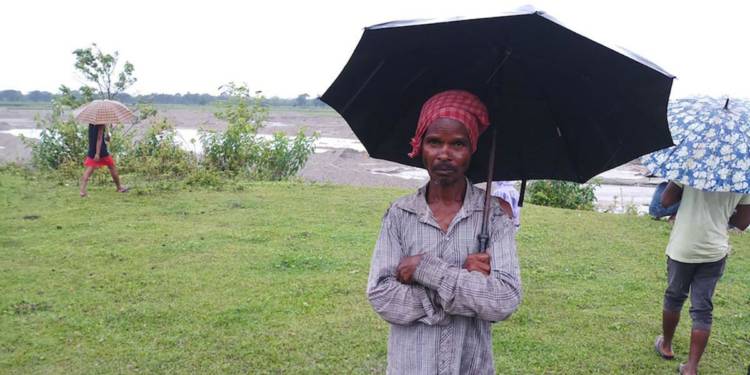The tea industry is touted as the country’s second-largest employer, but it is also an industry that undermines labour rights and deprives workers and their families of the most basic needs. There’s widespread poverty, malnutrition, human trafficking and starvation death: obvious factors underscoring the desire for a better life. The availability of basic facilities like healthcare and education is extremely poor and when the reins of the state of affairs are under the hands of as incompetent as Mamata Banerjee, things are bound to get difficult for the tea plantation workers who earn a pittance in return for their hard labour. For more than 4,500 workers of tea gardens in Bengal which have declared lockouts, it is a hand-to-mouth existence in a grim battle against grinding poverty.
A report published in The Hindustan Times has said that families of each of these workers are entitled to a financial assistance of Rs 1,500 under the Financial Assistance for the Workers of Locked Out Industries (FAWLOI) scheme. But the dole has dried up. Already the wages paid in Bengal are comparatively lower than what is being given to workers in southern states. They have been moving out for better wages for over the years, resulting in a shortage of workers in the operational tea gardens. This migration, coupled with the deceitful tea-garden promoters who embezzle and siphon money out of the banks and toothless West Bengal Tea Development Corporation(WBTDC) led by the state government has only led to the closure of tea-gardens.
The Minimum Wages Act 1948 and The Plantations Labour Act, 1951 is still to be implemented properly across the state. The minimum wage is yet to be fixed, in spite of repeated demands across the hills, strikes and clarion calls and promises by the TMC. Bengal has at least four Lok Sabha seats where tea workers’ votes are decisive, yet Mamata-led TMC has put the whole issue in the backburner. Mere assurances are provided to the tea workers by the Mamata government and assurances don’t solve problems.
The gardens where the dues are piling up since April are Madhu, Dheklapara and Bandapani in Alipurduar district, Red Bank and Surendranagar in Jalpaiguri district and Panighata in Darjeeling district. These tea gardens have been lying abandoned for years. Under the FAWLOI scheme, a worker gets a monthly assistance of Rs 1,500 from the state labour department once the lockout continues beyond three months. While thousands of workers covered under the FAWLOI still remain unpaid, the screening committee in a meeting on August 26, brought four more tea gardens under the scheme. Three of these are in Darjeeling and one in Jalpaiguri district. Only the almighty knows how the Mamata-government is planning to pay up these new now-defunct tea plantation workers. Officials said on condition of anonymity that dues have piled up since the labour department did not get the money to be disbursed. “For the past five months my three children and I have been surviving on whatever food comes our way. Often it is rice, water and salt,” said Subanti Oaraon, a worker of Madhu tea estate to a reporter of HT.
There is a racket running in the closed tea gardens most certainly at the behest of the state government where majority of the tea gardens owners are loan defaulters and their property is under liquidation. They have siphoned the money from the tea gardens to real estate and other businesses over the years spelling dooms for the industry. Over Rs 300 crore gratuities of the garden workers are still pending with the owners. It does not take much to figure out that the industry is being run by vested interests of the government and its corrupt officials who instigate this pattern which seems to be flourishing under the state government which has emerged as the biggest villain and if Didi does not wake up from her sleep at the earliest, it could spell doom for the entire industry and the hard-working plantation workers.



























